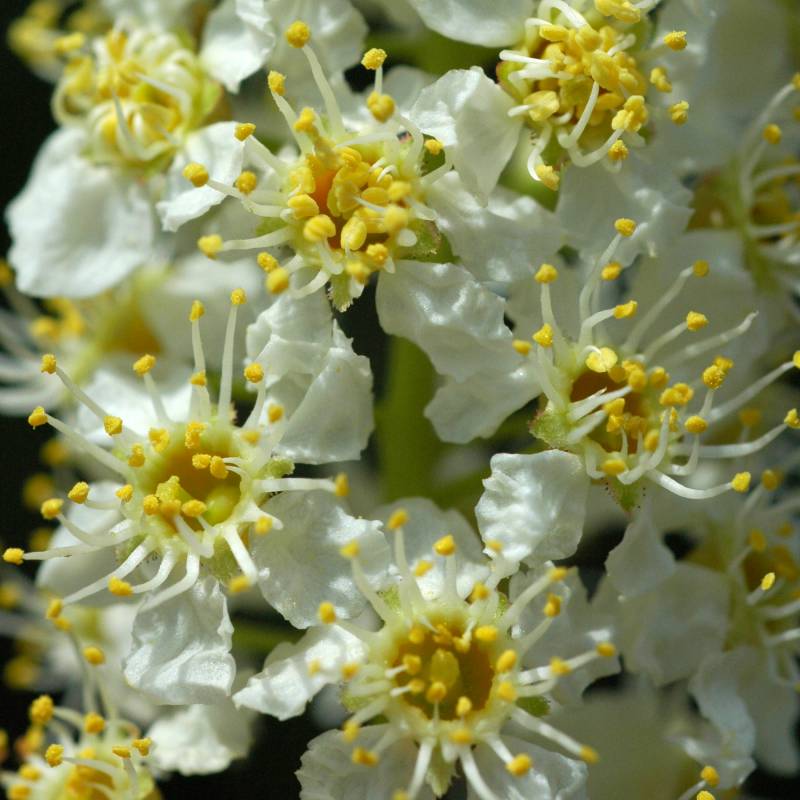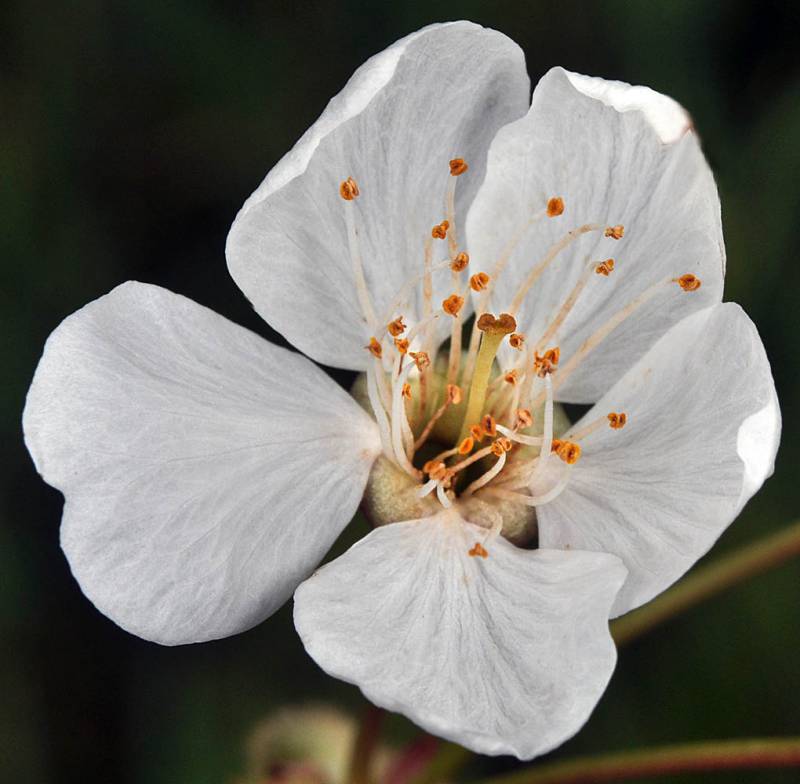Prunus virginiana
Prunus domestica
common chokecherry, western chokecherry, white chokecherry
cultivated plum
Leaf blades elliptic to oblong-obovate, finely serrate, 4-10 cm. long, bright green and glabrous on the upper surface, paler and glabrous to pubescent beneath.
Inflorescence a terminal, pendant, many-flowered raceme, the uniform pedicels 4-8 mm. long;
calyx glabrous, the 5 lobes spreading to recurved, oval, finely glandular, 1-1.5 mm. long;
petals 5, creamy white, sub-orbicular, early-deciduous, 4-6 mm. long;
stamens about 25;
pistil 1.
Drupe ovoid, 8-11 mm. long, red to purple or black.
Prunus virginiana
Prunus domestica
Widely distributed on both sides of the Cascades crest in Washington; British Columbia to California, east across North America to the Atlantic Coast.
Occurring chiefly west of the Cascades crest in Washington; Washington to California, east to Idaho and Utah; in scattered locations of central and northeastern U.S.
- Local floras:
BC,
OR,
WA
- Local Web sites:
Flora NW,
PNW Herbaria
WildflowerSearch
iNaturalist (observations)
USDA Plants Database
- LBJ Wildflower Center
- SEINet
- Plants of the World Online
- Encyclopedia of Life
- Wikipedia
- Google Image Search



